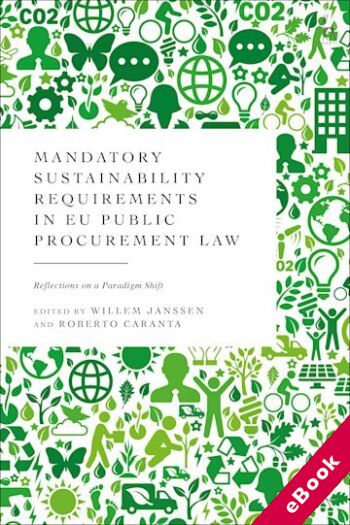We are now closed for the Christmas and New Year period, returning on Monday 5th January 2026. Orders placed during this time will be processed upon our return on 5th January.

The device(s) you use to access the eBook content must be authorized with an Adobe ID before you download the product otherwise it will fail to register correctly.
For further information see https://www.wildy.com/ebook-formats
Once the order is confirmed an automated e-mail will be sent to you to allow you to download the eBook.
All eBooks are supplied firm sale and cannot be returned. If you believe there is a fault with your eBook then contact us on ebooks@wildy.com and we will help in resolving the issue. This does not affect your statutory rights.
This book provides the first comprehensive appraisal of the paradigm shift towards mandatory sustainability requirements in EU public procurement law.
Traditionally, EU public procurement law focused on 'how to buy', dictating procedural rules so that public buyers in the Member States did not discriminate against suppliers and service providers from other Member States. Mandatory green and social requirements mean that, with a view to achieving sustainable development goals and mitigating climate change, the EU will limit this discretionary power for public buyers, pushing them to acquire more sustainable goods and services.
Based on legal analysis informed by economic perspectives, the book aims to contribute to an understanding and critical discussion of the EU legislator's move towards regulating 'what to buy'. The book discusses the role of the Public Procurement Directives in relation to this paradigm shift, as well as various other sectoral legislative instruments that have been revamped or newly introduced in light of the European Green Deal. The paradigm shift is analysed from different perspectives, including subsidiarity, alternative regulation, economics and public purchasing.
The book includes novel sectoral studies on transport, food, clothing, and construction, discussing how change is taking place and what its major challenges are for the future. Chapters on Italy, the Netherlands, Spain, and more, offer case studies of Member States that have already introduced mandatory requirements and highlight lessons learnt.
This is an essential book for professionals working with public procurement law in academia and practice, and to those engaged in achieving public policy objectives in light of climate change and social injustice.